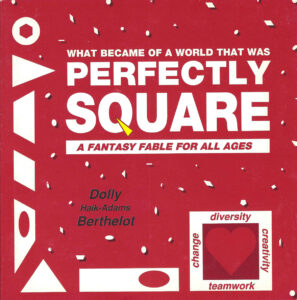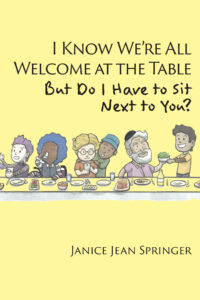If You’re Nice, Diversity Will Take Care of Itself
Bad Ideas I Learned from Good Leaders #2
I’ve heard this one from so many people that I would hardly know who to blame for it if I wanted to blame someone. I’ve been told that if you will just be nice and positive, you can ignore the differences in your congregation and everything will take care of itself.
This is incorrect. If you ignore the diversity that is present in your congregation, you will likely encounter a number of problems.
- You will find that people will have differing definitions of the boundaries and thus create conflict in the church unnecessarily.
- Different people offer different gifts, and if you fail to discover these gifts, there will be missed opportunities.
- Problems in the surrounding society may cause division in the church unnecessarily.
If you don’t believe me on any of this, read 1 Corinthians. Here we have a church with division, and Paul tells them that God has brought them together from differing backgrounds, with different talents, and made them into one body with different gifts. Read especially 1 Corinthians 12. As a follow-up, read Romans 14, or even better Romans 12-14. (I’m not a good proof-text person. Read a few chapters!)
Note here that I’m not talking about some sort of quota system or diversity inclusion. I believe in inclusiveness, but in this case, I’m assuming what I’ve seen in most churches, and that’s a variety of people already present. The problem is that they are carrying out a one-day-a-week religious program because the church has failed to incorporate them into a single body, the Body of Christ, to have an impact on their world.
To accomplish this, it is necessary to actively acknowledge the differences among the members of the congregation. These differences should be recognized not for the purpose of a select group of individuals asserting superiority over others, but rather to appreciate the diverse gifts that have been gathered, value those gifts, and collaborate effectively by utilizing all available resources.
Diversity in any organization is valuable. It allows us to accomplish things that none of us could achieve on our own. The problem is that many of us are so focused on our own strengths and weaknesses that we fail to recognize how others operate and what they can achieve.
This could be as simple as finding the nerdy young person who doesn’t seem to fit in socially, but who, unknown to you, has a talent with electrical systems and would be able to run your sound system better than anyone else. That young person, being socially uncomfortable, is vanishingly unlikely to volunteer. They probably assume they’ll be pushed aside or ignored for no better reason than that they have been pushed aside and ignored over and over.
This “different” person doesn’t need you to change their personality. They need you to let them be who they are and do what they are gifted to do. To do this, you need to have a clear understanding of what is a moral difference that is a standard for the church and what is a difference of personality. Too often, we treat Christian discipleship as a personality change.
Don’t figure that you have to make the Jock do lots of hours of detailed Bible study. God may well have called them to a straightforward understanding of their faith and to be a good, kind, fun loving, and active person. And don’t expect the Nerd to be ready to engage in all those physical and social activities that you think are so essential to life.
Oh, and don’t expect everyone who gets involved to be ready to serve on a committee. They might be quite willing to take direction but not to spend seemingly endless time discussing.
In addition, there is value in being clear about the core beliefs of your church (or any other organization for that matter). This is not so you can go hunting for heresy. I recommend a short list of essentials, the common beliefs that unite this specific group. The purpose of clarity is to avoid unnecessary misunderstandings.
Let me recommend a couple of books to help learn about and deal with diversity, whether in the church or in the community. I commend both of these books for making diversity a value rather than a burden to be borne or a duty to be carried out diligently.
The first I already mentioned in the first post in this series, Perfectly Square by Dolly Berthelot. This book is short, illustrated, easy-to-read, and fun. It’s not particularly directed at churches. That’s a good thing. Your church is not perfectly square either. Church people are people. There are thought questions and discussion topics listed in the book. It’s good for group reading and discussion.
It is also not a prescription for programs, but rather it is aimed at changing attitudes and opening up new ways of thinking about the differences we find all over.
The aim is to recognize these differences and profit from them as a community rather than making them a cause of discord and division.
The second is a book explicitly for church groups. I Know We’re All Welcome at the Table, but Do I Have to Sit Next to You? Now there’s a long title! But this book provides ideas and courses of action that a community group can use to begin to deal with those people we don’t want to deal with. The focus is on people and groups we may already have identified, probably stereotyped in our minds, and determined that we dislike or worse. How can you get back together.
My suggestion here is that to really lead we need to learn how to work together, and use all of the diverse gifts and resources we have in our congregations in order to impact our communities.




